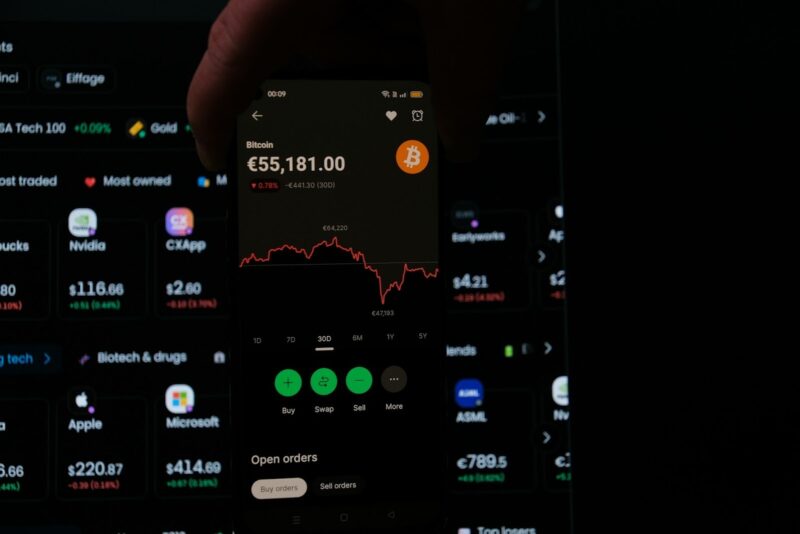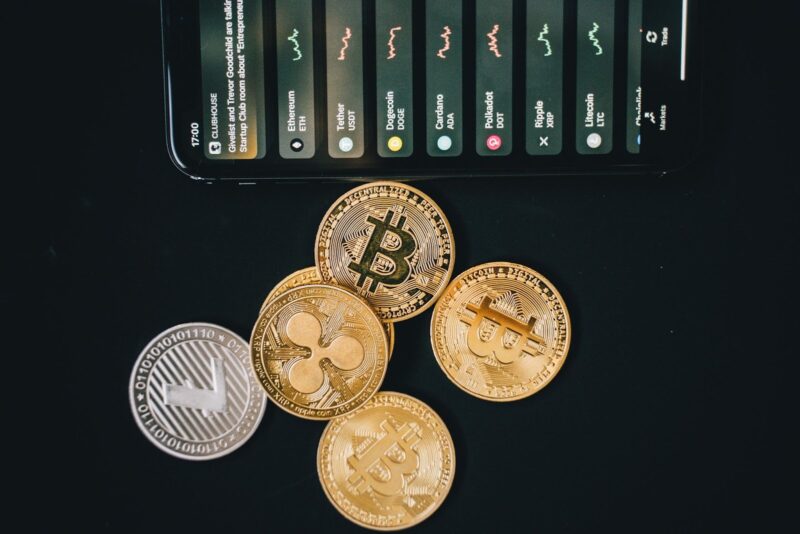Table of Contents
ToggleUnicred is an open-source protocol that incentivizes users to share their idle computing power and bandwidth. It’s a decentralized, fair and equitable financial system where the supply of liquidity comes from those who have excess resources (CPU & Bandwidth). The token will be used as means for payment in exchange of services.
The “nft staking code” is a protocol that allows users to earn and spend NFTs while using the DeFi network.
The Project Report series, created by the Launchpool Labs incubator in collaboration with, provides an in-depth look at cutting-edge projects by expressing an unbiased evaluation of the technology used, product maturity, team information, SDKs and code, an assessment of the risks and opportunities surrounding investment in the project, and much more. The Unicred Project Report is being presented today. Want to make more money? Visit this site, BetWinner, and explore opportunities to invest and grow your wealth.
Unicred’s background: Unicred is a data-driven NFT monetisation and money market protocol, established by a senior team with experience at Goldman Sachs and Wells Fargo. By making the interest rate and LTV computation dynamic, it allows user-centric borrowing and lending against bitcoin to generate better rates as a DeFi instrument. Top NFTs are used to secure collateralized loans against it, with the NFTs staying in the user’s possession.
Aave and Compound are examples of platform works. BSC, Solana, Algorand, Polygon, Avalanche, and ETH are among the protocols supported.
Launchpool Labs is a community-centric incubator that is independent of any chain. Projects and Teams are incubated using a customized strategy that focuses on co-creating the MVP and MVC (minimal viable community) as well as generating pre-seed and seed capital. Launchpool Labs works with a number of protocol partners, advisers, and marketing and launch experts.
Projects may conduct a pre-IDO on Launchpool’s launchpad after incubation, where everyone is assured allocations in private rounds (subject to KYC). Launchpool Labs’ Roxana Nasoi, MD:
“We like Unicred’s NFT monetisation protocol, as well as their DeFi instruments, which are supported by genuine user data – something that the present crypto industry lacked.” We hope that the community will appreciate this Project Report as much as we loved working with Rakesh and his colleagues at Launchpool Labs throughout their incubation.”
Disclaimers: Unicred is part of Launchpool Labs’ first batch of projects (August 2021 – November 2021). Launchpool Labs considers is a valuable media partner.
1. Provide an overview
Unicred is a multi-blockchain secured loan and borrowing platform. The protocol uses statistical models based on on-chain user wallet data to determine interest rates and LTVs, allowing it to fill in the holes in the present loan ecosystem.
The protocol’s risk algorithm is fueled by data, and interest rate and LTV calculations are dynamic, taking into account all relevant information on the blockchain.
Unicred is able to provide greater LTVs as a result of this, which is an innovative method to modernizing decentralized financing.
In this research, we look at the Unicred technology and the answer it provides to the challenges that the DeFi ecosystem is experiencing.
2. Market
For hundreds of years, lending and borrowing have been key aspects of the conventional financial system. However, it wasn’t until decentralized finance was introduced that these characteristics started to expand and flourish, both in terms of accessibility and application.
DeFi enables customers to access financial services without the need of middlemen, which is a great revolution that has ushered in a new economic structure.
DeFi protocols have over $98 billion in total value locked (TVL) as of December 2021, demonstrating that the market has swiftly adopted the unique idea. Over $53 billion in TVL is held by the top five major DeFi lending mechanisms. The amount of transactions is likewise limited to about 50,000 wallets, indicating that genuine DeFi adoption has yet to occur.
While this is still a small portion of the global financial services industry, which is anticipated to reach $22.5 trillion by the end of 2021, it demonstrates that DeFi still has untapped potential.
Decentralized finance, on the other hand, has its own set of disadvantages. To make permissionless loans, lending methods need cryptocurrency as collateral. While the absence of a third party reduces the barrier for many of the unbanked, it remains a barrier for individuals who do not have any crypto assets.
Unicred wants to be seen as a solution to this issue, using a data-driven system that allows consumers to get uncollateralized loans.
3. The use of technology
Unicred’s loan and borrowing features follow a three-step process. The tool gathers repayment information from Compound and Aave contracts before constructing an experimental scorecard based on the relative factors. After that, it assesses their relationship to wallets other than Compound and Aave in order to identify hazards.
Unicred’s NFT-collateralized loans will be the platform’s main emphasis when it comes to certain loan kinds. Unicred initially gathers information on the token from multiple data sources before issuing a loan to a user who has pledged an NFT as security. These include the blockchain on which the NFT was issued, the platform’s price oracle, and multiple NFT markets like OpenSea and Rarity.tools.
Static and variable data are fetched by the platform. The rarity of the token, the history of the NFT’s ownership transfers, and publisher verification are all examples of static data. The variable data includes the NFT’s floor price, the current price of ETH or another blockchain’s native token, and its transaction volume.
Unicred then evaluates the NFT and calculates the interest rate and LTV for the individual user based on the information. If the user agrees, the NFT is put into Unicred’s NFT contract, and the platform loans the user the amount of DAI chosen.
Liquidity providers supply the borrowed DAI, which they deposit in a single asset pool on Unicred. Unicred gives LPs 50% of the platform’s earnings to guarantee adequate liquidity and encourage greater liquidity provisions.
4. The economics of tokens
The native token of Unicred, UCR, has a fixed supply of 100 million units. In the Pre Seed financing round, 5 million tokens were sold to investors, accounting for 5% of the total supply, while another 5 million were assigned to the Seed round. The tokens are subject to a vesting schedule in both financing rounds, with 10% of the supply issued at the token generation event (TGE) and the remainder vested over 10 months. A total of 5 million tokens were distributed in the platform’s private investment round, which is likewise subject to the same vesting schedule.
The strategic investment round garnered the most tokens—10 million, or 10% of the total supply.
The public sale of UCR will get 500,000 tokens (0.50 percent of the total supply), with the complete quantity accessible upon listing.
Unicred allocated 15 million tokens, or 10% of the total supply, to support its operations, with the same 10-month vesting timeline as previous financing rounds. Unicred’s staff and advisers got 15% of the supply, with the remaining 15 million tokens locked up for at least six months or until the product is released on mainnet. After then, the supply is provided at a 10% monthly rate.
A further ten percent of the supply is set aside for marketing purposes. After a one-month cliff, the 10 million UCR will be delivered in a linear fashion over the next ten months.
The platform prizes and incentives received the most share of UCR’s supply. The 24.5 million token allocation is distributed between four quarterly events and represents 24.5 percent of the supply, with the goal of attracting liquidity providers and rewarding stakers.
5. The Team and the Investors
Rakesh Lavi, who hails from the conventional financial industry, developed Unicred. Lavi, the head of growth at Scienaptic AI, began his career at Goldman Sachs and has been working in the crypto business since 2015. Chiragsovi, the company’s CTO, has worked at Deloitte and has expertise growing SaaS applications.
The remainder of the Unicred team has a mix of DeFi and legacy financial systems knowledge. Anthony Vo, the KardiaChain Foundation’s CFO and the Bank of Hope’s head of FP&A, Divij Sood, a partner at Blockpact Capital, and Gaurav Dahake, the CEO of BitBNS, are among Unicred’s advisers.
Unicred has added Liam Robertson, the CEO of Alphabit Digital Currency Fund, and Richard Simpson, the CEO of Launchpool, as advisers.
6. Collaborations
Unicred has worked with Lauchpool Labs, Alphabit, Exnetwork Capital, Chainflux, Blockpact, and BitBNS since its start, all of which serve as consultants and investors to the firm.
Unicred’s collaboration with Launchpool Labs stands out as the most formative of all the firms with whom it worked. Unicred was the fourth firm to enter Launchpool Labs’ initial three-month incubation program this summer. Unicred collaborated with cross-industry partners and Launchpool Labs advisers to create a minimum viable product (MVP) and a minimum viable community throughout the program (MVC).
The Launchpool launchpad hosted Unicred’s pre-seed and seed investment rounds, as well as its private round token sale (pre-IDO).
Audits and security are the seventh and eighth items on the list.
Unicred is built on a fork of Compound’s smart contracts, and it inherits most of the security features of the popular lending protocol. All essential audits will be performed starting with version 2.
8. Roadmap for the Product
Unicred, a recent graduate of Launchpool Labs’ incubator program, has a busy development plan that will start in 2022. The firm has a plan that will take it until mid-2023 to attain complete capability.
Unicred will deploy V1 of the stock Compound fork on the Binance Smart Chain in the first quarter of 2022. (BSC). Binance will launch its yield-generating coin UCR after the protocol is deployed on the DeFi chain. Unicred will also disclose its NFT monetisation protocol, which will most likely come before the BSC money market protocol. The Solana blockchain will host the NFT monetization platform.
The V1 stock Compound fork will debut on the Polygon network the following quarter, marking the start of Unicred’s cross-chain presence. At the same time, BSC will launch v2 of the Compound fork, which will use an upgraded regression method to calculate risk.
V2 with the regression method will be available on Polygon in the third quarter of 2022, while V1 will be available on Avalanche, Algorand, and Ethereum. V2 will be implemented across all protocols by the end of 2022.
Unicred plans to deploy its testnet for artificial intelligence (AI) and risk calculation learning in the fourth quarter of 2022, as well as build a Unicred DAO.
NFTs will be present at the start of 2023. Unicred will establish a testnet for NFT-based borrowing and lending, as well as NFT-based uncollateralized lending, in the first quarter. Both functionalities are expected to launch in the second quarter of 2023 on the mainnet.

9. Risks and Possibilities
Unicred was created with a lofty purpose in mind: to create variable loan-to-value ratio (LTV) and interest rates based on user data. While most lending protocols rely their interest rates on liquidity, Unicred’s data-driven variable rates have the potential to propel Unicred to the forefront of the DeFi industry.
The platform’s intentions to incorporate NFTs into lending are another strength. Non-fungible tokens’ massive popularity in the last year has remained one-dimensional. Unicred’s ambitions to leverage NFT-based blockchain identities as the cornerstone for its uncollateralized lending may appeal to consumers with little liquidity.
As the platform serves more clients, its native cryptocurrency, which is designed to motivate people to connect with it, has the potential to expand.
Unicred’s promise, however, is not without peril. Because of its inability to provide great content and properly advertise their future IDO across numerous launchpads, UCR’s entire supply will stay in the hands of huge investors. The crypto community has become more concerned about the “centralization” of DeFi protocols as a result of big seed investment rounds, and is wary of interacting with a platform whose whole token supply is owned by a few venture capitalists.
Even if the platform overcomes these challenges, it will still be vulnerable to price volatility. A bear market has the ability to wipe away the majority of the value of a small-cap coin like UCR, reducing the incentives for users to interact with the platform significantly.
tenth conclusion
Unicred, which was founded to provide customers access to uncollateralized lending, has the potential to be at the forefront of the DeFi business. If the platform can establish a strong presence in the crypto community and get visibility via organic participation rather than sponsored partnerships, the token sale might be oversubscribed and the platform could achieve commercial success.
Unicred will have to show itself once fully launched and supported by a robust community by offering consumers with a seamless lending experience and avoiding security risks. If the platform grows in tandem with the NFT industry, it may be one of the first protocols to provide NFT-based financing.
Disclosure: I was paid to write this article. Click here for additional details.

This project report was created in collaboration with Launchpool Labs.
Launchpool Labs is a community-centric incubator that is chain agnostic and powered by Launchpool.
Learn more
Watch This Video-
The “defi staking development” is a protocol that allows for the monetization of digital assets on the Ethereum blockchain. It was developed by Unicred, and it has been designed to allow users to earn rewards through the use of their own personal wallet which can be used in conjunction with other wallets.
Related Tags
- nft staking contract
- juld nft staking
- nft lending
- nft staking reddit
- drops nft





